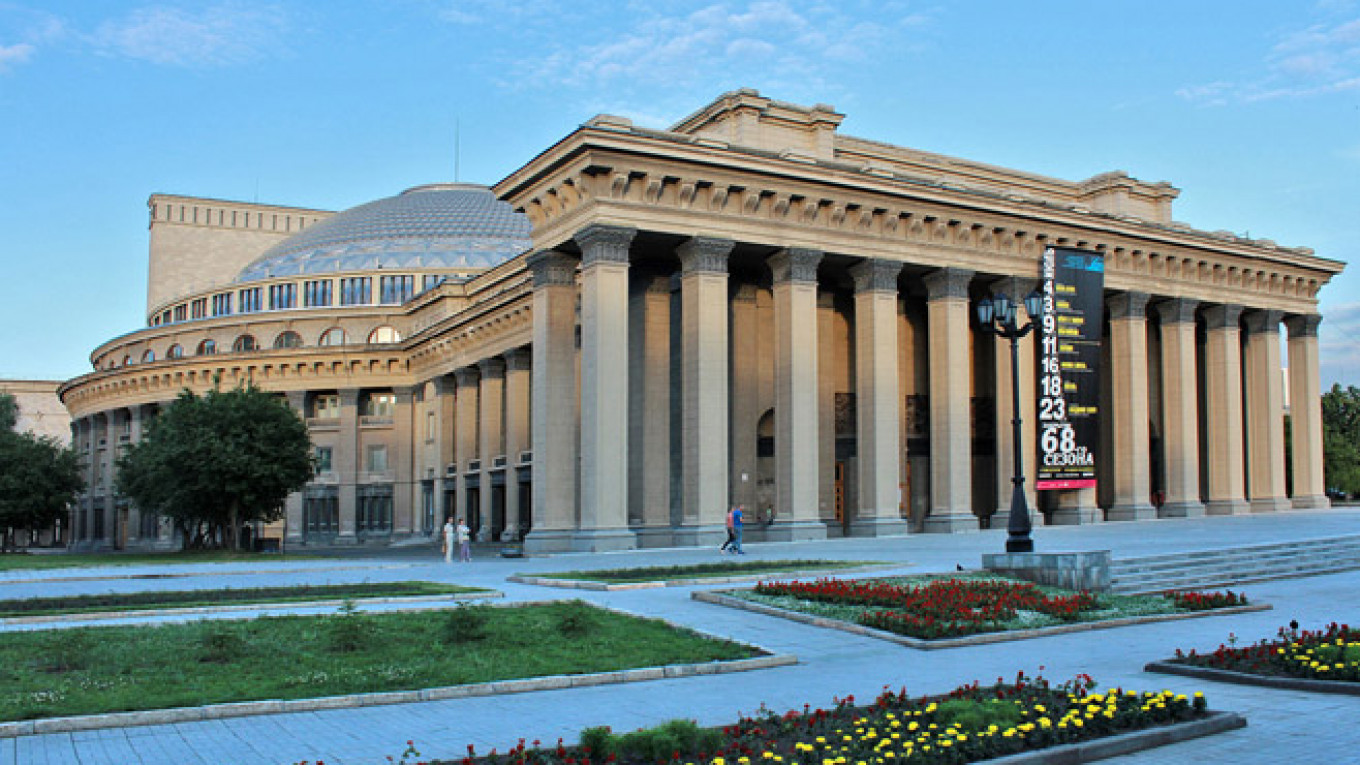Critics complain that the vague language and broad terminology used to draft some of Russia's more controversial laws make them fodder for prosecutorial abuse.
Prosecutors could take advantage of the loose definitions featured in the laws banning extremism, gay propaganda, blasphemy and offending the sentiments of religious believers to silence dissent, activists have warned.
"These days in Russia anti-government critics would do well to know that the authorities scrutinize their every word and action waiting for a chance to pick from an array of vague laws to pursue charges that can silence the criticism," Human Rights Watch wrote in an October dispatch.
A handful of recent cases illustrate how broadly worded laws can have an unexpectedly harsh impact.
Accidental Nazi Propaganda
Uploading a historic photo onto popular social media site VKontakte proved unexpectedly controversial for Smolensk-based journalist Polina Danilevich, regional news site readovka.ru reported.
Smolensk was under Nazi occupation between 1941 and 1943. Danilevich found a photo from the period featuring German troops standing in the courtyard of the building where she currently resides, along with a flag bearing a swastika.
Blithely unaware that a federal law banning the "public demonstration or propaganda" of Nazi symbolism, which President Vladimir Putin signed in Nov. 2014, would extend to such things, Danilevich posted the photo to her VKontakte page on Jan. 31, according to regional media.
On Feb. 28, Danilevich was interrogated by police. Then on Monday, she was fined 1,000 rubles ($16) for violating the law banning Nazi symbolism. She lucked out, having been slapped with only the minimum fine for violating the law; she could have faced up to 15 days in prison over the post.
Pictures of swastikas posted alongside relevant news stories have also gotten two Siberian news websites in hot water.
Gorodskiye Novosti and Newslab, websites based in Krasnoyarsk, last month received warnings from regional prosecutors for publishing pictures of a vandalized Soviet war monument that had been desecrated with graffitied swastikas.
Offensive Theatre and Opera Productions
Izhevsk priest Vladimir Andrianov complained to regional authorities that a local theater production of Alexander Pushkin's "Blizzard" — which features a priest with drinking problems — offended his religious sentiments, the TASS news agency reported Monday.
Andrianov, who added that the crucifix used in the production had been "exaggerated and ugly-looking," threatened to take his complaint to the federal level pending the regional authorities' failure to shut the performance down.
An administrative case was likewise launched last month against the director and opera director of the Novosibirsk Opera and Ballet, whose production of Richard Wagner's "Tannhauser" is suspected of having offended the sentiments of religious believers.
Opera director Timofei Kulyabin's staging of the production features a scene where the Roman goddess Venus promises eternal love to Jesus Christ, granting he agree to stay with her in a grotto. He refuses the offer and destroys the grotto with the Virgin Mary's help, according to a summary on the theater's website.
The probe was initiated after Metropolitan Tikhon of Novosibirsk complained that Kulyabin's rendition had desecrated Christian religious objects. If charged and convicted, both directors face up to 50,000 rubles ($800) in fines and 120 hours of community service, Lenta.ru reported.
"The opinion of one person should not be enough," said Sergei Kuznetsov, the head of the Center for the Study of Extremism and Corruption at St. Petersburg State University. "There needs to be a general negative appraisal of the situation for something to be considered insulting to religious believers."
Contact the author at [email protected]
A Message from The Moscow Times:
Dear readers,
We are facing unprecedented challenges. Russia's Prosecutor General's Office has designated The Moscow Times as an "undesirable" organization, criminalizing our work and putting our staff at risk of prosecution. This follows our earlier unjust labeling as a "foreign agent."
These actions are direct attempts to silence independent journalism in Russia. The authorities claim our work "discredits the decisions of the Russian leadership." We see things differently: we strive to provide accurate, unbiased reporting on Russia.
We, the journalists of The Moscow Times, refuse to be silenced. But to continue our work, we need your help.
Your support, no matter how small, makes a world of difference. If you can, please support us monthly starting from just $2. It's quick to set up, and every contribution makes a significant impact.
By supporting The Moscow Times, you're defending open, independent journalism in the face of repression. Thank you for standing with us.
Remind me later.






